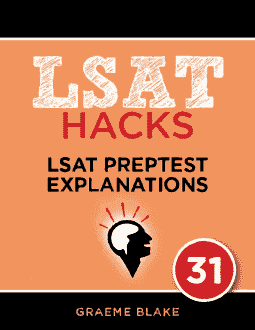QUESTION TEXT: Reviewer: Although finalism – the view that there are…
QUESTION TYPE: Flawed Parallel Reasoning
CONCLUSION: Finalism is more plausible than people thought.
REASONING: Finalism has been completely rejected. But this new book fails as an attack on finalism.
ANALYSIS: This argument is really backwards. It tells us that finalism is utterly rejected by everyone. But then the reviewer switches to arguing that finalism is plausible (despite universal rejection.)
Huh? Some book did a bad job of attacking finalism. Therefore finalism must…be true?
Here’s a parallel argument. I write a book arguing that the earth is round. But it’s a terrible argument, an utter failure of a book. Therefore, the reviewer concludes that the earth is…flat, because my book sucked.
Failure of an argument against something does not mean that that thing is true.
___________
- This is a weird argument. The author presents evidence that the claim is wrong. He then therefore concludes that the claim is right. It’s a very dumb mistake, but not quite the same as the mistake in the stimulus.
In the stimulus, flawed evidence against a view was presented. The author then accepted that view because the evidence against it was flawed. It’s a different situation. - This is a reasonable argument. We need more information to judge accurately. This doesn’t make the massive flaw made in the stimulus.
- CORRECT. Here, a bicycle engineer makes a bad argument while trying to argue that titanium is better. The author goes way too far and concludes that aluminum must be better just because the guy made a mistake. It’s the same error from the stimulus.
- This sounds like a bad argument. We have no indication that the world’s best wines had to have been produced that same year. But it doesn’t commit the massive error made in the stimulus.
- This isn’t a terrible argument. It might be the case that TV harms children. This argument certainly doesn’t make the massive flaw in the stimulus.


Leave a Reply